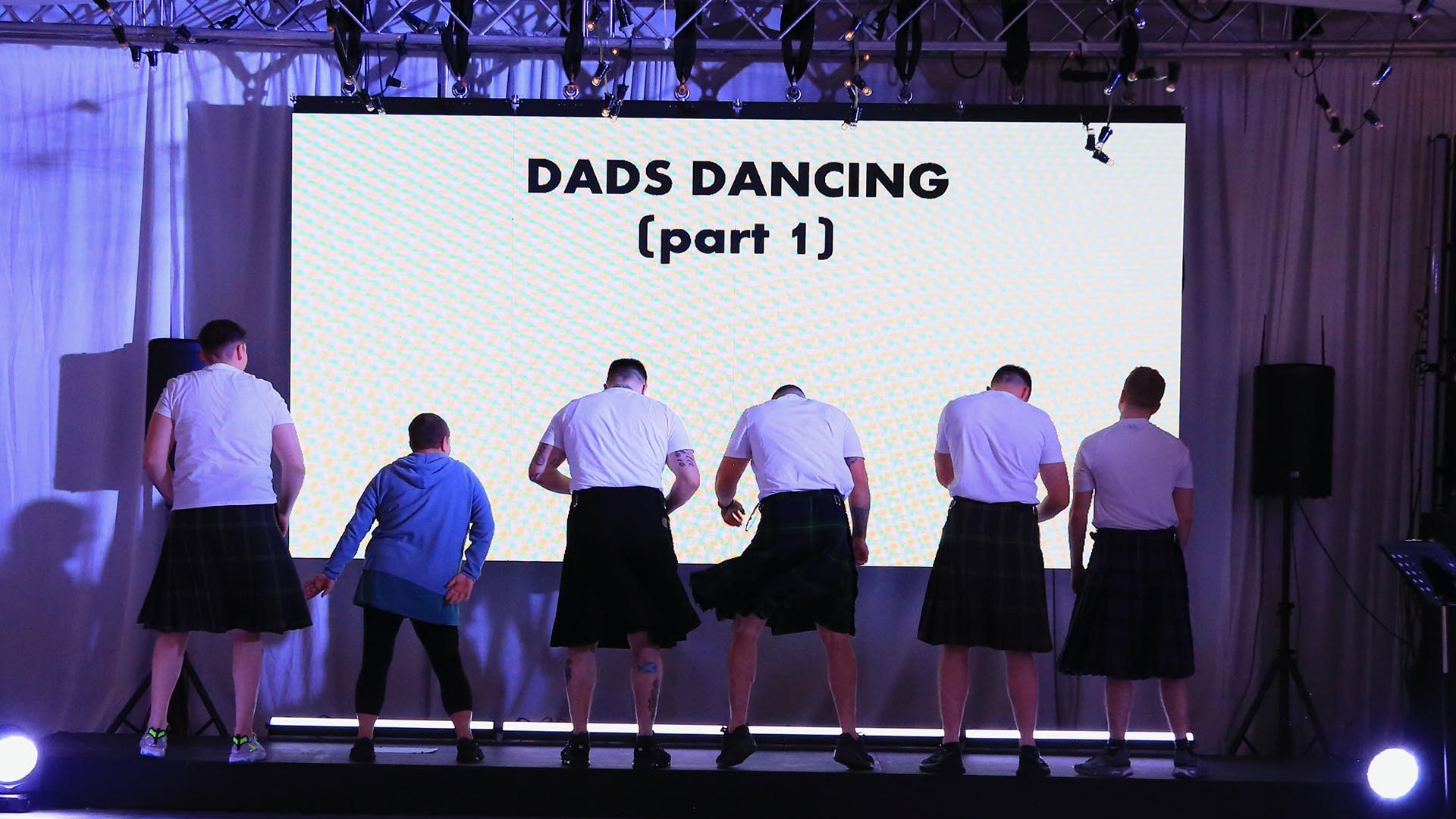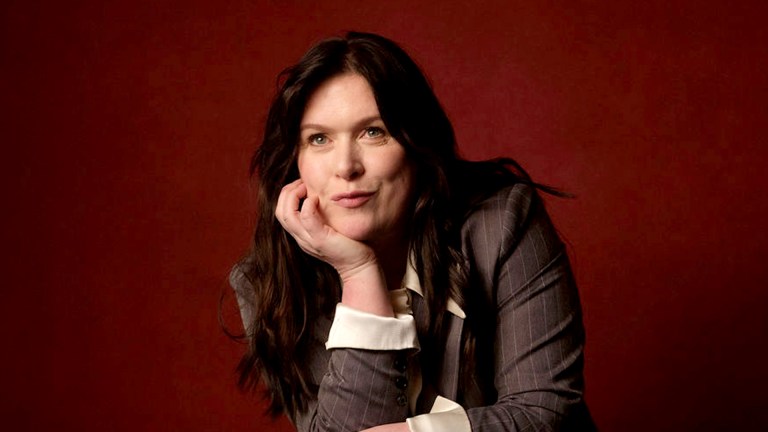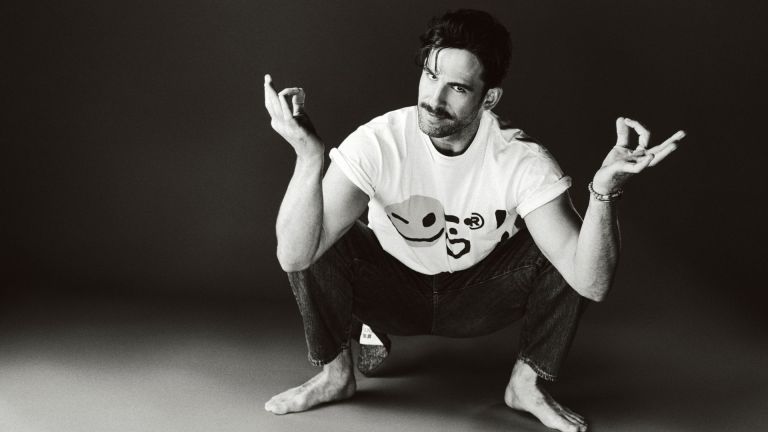The ‘cast’ is self-selected. Thorpe spoke to prisoners about the project when rehearsals began earlier this year. The criteria for participation included the men having kids that they were legally allowed access to.
“It takes a brave person to take part, because they’re putting themselves out there,” she says. “They chose to come.”
The show takes the form of song and dance with some stand-up. One prisoner plays guitar with his son on drums. Another has a dance-off with his six-year-old boy, whose delight on performing with his father beams so strongly it must reach the loneliest corner of the darkest cell in the 183-year-old jail.
One of the prisoners quietly sidles up to me and confesses that this is the best thing he’s ever done in his life. The formality of the visiting room is awful, he tells me, and interacting with his kids in a more casual setting within the prison has enabled him to forge new bonds. Another approaches to tell me rehearsals give him something to look forward to, in a world stripped of bright horizons.
Theatre practitioner Lewis Fraser is leading the performers through their moves, encouraging them to express themselves physically, something the men need little encouragement to do. They form a train and push one of their number into the room on a riser, playing electric guitar, to the crowd’s delight.
Fraser understands the value of the work he’s doing better than most. “Ten years ago I performed in a project with Jess while I was a prisoner at HMP Perth,” he says. “Once I got out I ended up getting my degree in contemporary performance practice. This is my second prison project. Opportunities like this can be lifechanging. I wouldn’t be doing the work I have been doing for the last 10 years since I left prison otherwise. From the cage to the stage.”
Advertising helps fund Big Issue’s mission to end poverty
At least two of the performers tell me they’re here on life sentences. One has four children. “It’s terrifying, having them out there and being in here,” he says. “The job my missus has done since I’ve been in here is miraculous. One of my daughters has just finished art school and holds down a job. Another has Asperger’s. Spending time with her in this environment has been much better for me and her. I can see the wee traits.
“Once I was told I’d get extra time with my weans that was enough for me. It’s paying itself back tenfold. No matter how embarrassed I get doing stuff out of my comfort zone, it’s worth it because of how much closer I feel to the weans.”
Another performer is dad to a boy who was a year old when he was jailed. He’s now approaching his teens. “I’ve watched him grow up in the visit room,” he says. “It’s not easy, but things like this make a difference.
“It builds our confidence. If you’ve been in prison for a while then you can get nervous about doing something in front of people you don’t know. You can get nervous just going into a visit room with your own family if you’ve not seen them for a while.
“Breaking someone’s spirit in prison will only lead to a worse outcome when they get out. This can help people see there’s more to life than crime. It’s the best thing I’ve ever done with my son.”
The mother of two teenage daughters is watching from the tables as they rehearse with their dad. “In the visit room you feel as if you can’t move. In here you don’t feel like you’re in jail,” she says. “I’m dead proud of them. The kids are high as kites when they leave.”
Advertising helps fund Big Issue’s mission to end poverty
“Who do we want to see being released?” Thorpe says. “People who are angry and isolated because they’ve spent 23 hours a day for years by themselves? That doesn’t make people want to engage with communities. It just makes them more sad and angry. Or we can help them to build connections and recognise their own strength and skills.
“You see a totally different dynamic when the kids are here. The guys want them to see a different version of them, rather than the dad they get 45 minutes with in a visitors’ room.
“We have to take responsibility for building a society that we all want to be a part of. We have to see that complex picture. It can’t just be about an eye for an eye.”
This article is taken from The Big Issue magazine, which exists to give homeless, long-term unemployed and marginalised people the opportunity to earn an income. To support our work buy a copy!
If you cannot reach your local vendor, you can still click HERE to subscribe to The Big Issue or give a gift subscription. You can also purchase one-off issues from The Big Issue Shop or The Big Issue app, available now from the App Store or Google Play









